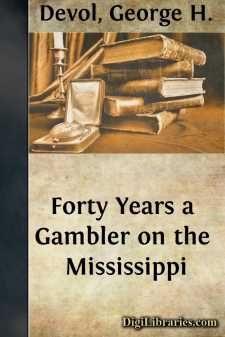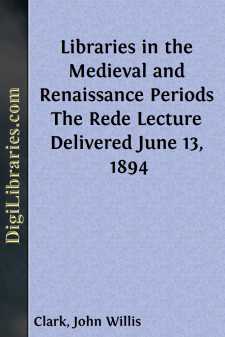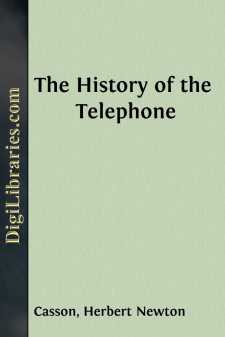History
- Africa 30
- Americas (North Central South West Indies) 50
- Ancient 68
- Asia 58
- Australia & New Zealand 8
- Canada 41
- Caribbean & West Indies 1
- Civilization 20
- Eastern Europe 12
- Europe 310
- Expeditions & Discoveries 60
- General
- Historical Geography 1
- Jewish 9
- Latin America 3
- Medieval 8
- Middle East 13
- Military 248
- Revolutionary 8
- Study & Teaching 5
- United States 353
- Western Europe 56
- World 13
General Books
Sort by:
by:
George H. Devol
BOYHOOD DAYS. "I'll serve his youth, for youth must have his course, For being restrained it makes him ten times worse; His pride, his riot, all that may be named, Time may recall, and all his madness tamed." My Dear Reader: I first saw the light of day in a little town called Marietta, at the mouth of the Muskingum River in the State of Ohio, on the first day of August,...
more...
PREFACE. In preparing the pages that follow, the writer has had in view the desirability of familiarizing the youth of Georgia with the salient facts of the State's history in a way that shall make the further study of that history a delight instead of a task. The ground has been gone over before by various writers, but the narratives that are here retold, and the characterizations that are here...
more...
by:
Rafael Sabatini
Preface The kindly reception accorded to the first volume of the Historical Nights Entertainment, issued in December of 1917, has encouraged me to prepare the second series here assembled. As in the case of the narratives that made up the first volume, I set out again with the same ambitious aim of adhering scrupulously in every instance to actual, recorded facts; and once again I find it desirable at...
more...
LIBRARIES. A library may be considered from two very different points of view: as a workshop, or as a Museum.FEELINGS ABOUTThe former commends itself to the practical turn of mind characteristic of the present day; common sense urges that mechanical ingenuity, which has done so much in other directions, should be employed in making the acquisition of knowledge less cumbrous and less tedious; that as we...
more...
by:
Matthew Luckiesh
I The human race was born in slavery, totally subservient to nature. The earliest primitive beings feasted or starved according to nature's bounty and sweltered or shivered according to the weather. When night fell they sought shelter with animal instinct, for not only were activities almost completely curtailed by darkness but beyond its screen lurked many dangers. It is interesting to...
more...
CHAPTER I THE EXPLANATION OF MATERIAL CHANGES GIVEN BY THE GREEK THINKERS. For thousands of years before men had any accurate and exact knowledge of the changes of material things, they had thought about these changes, regarded them as revelations of spiritual truths, built on them theories of things in heaven and earth (and a good many things in neither), and used them in manufactures, arts, and...
more...
by:
Charles Kingsley
THE FIRST DISCOVERY OF AMERICA Let me begin this lecture with a scene in the North Atlantic 863 years since. “Bjarne Grimolfson was blown with his ship into the Irish Ocean; and there came worms and the ship began to sink under them. They had a boat which they had payed with seals’ blubber, for that the sea-worms will not hurt. But when they got into the boat they saw that it would not hold...
more...
by:
George Lunt
INTRODUCTION. The Editor of this little volume does not deem it incumbent upon him to explain in what way the author’s manuscript came into his possession. He hopes it may be enough for him to say, that the writer believed himself to be the only person whose memory retained most of the incidents and anecdotes herein recorded; and a long and familiar acquaintance with his character enables the Editor...
more...
CHAPTER I. THE BIRTH OF THE TELEPHONE In that somewhat distant year 1875, when the telegraph and the Atlantic cable were the most wonderful things in the world, a tall young professor of elocution was desperately busy in a noisy machine-shop that stood in one of the narrow streets of Boston, not far from Scollay Square. It was a very hot afternoon in June, but the young professor had forgotten the heat...
more...
by:
Andrew Lang
IDon't let your poor littleLizzie be blamed!Thackeray. 'Everyone has heard of the case of Elizabeth Canning,' writes Mr. John Paget; and till recently I agreed with him. But five or six years ago the case of Elizabeth Canning repeated itself in a marvellous way, and then but few persons of my acquaintance had ever heard of that mysterious girl. The recent case, so strange a parallel to...
more...











